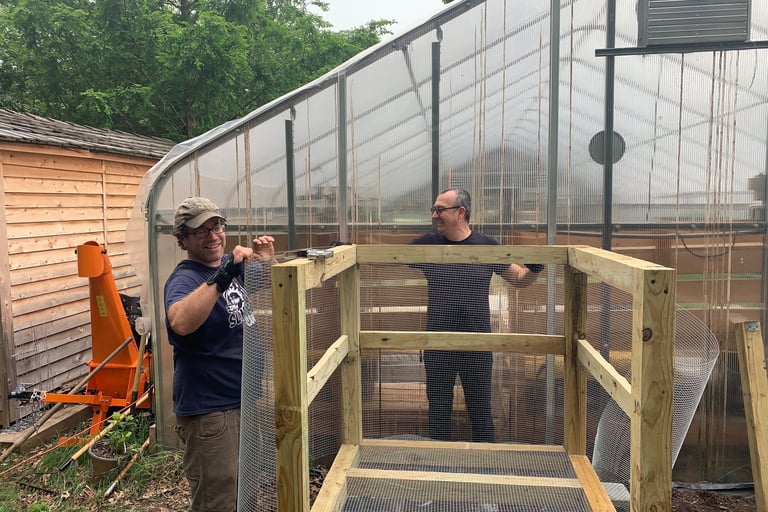2024 Environmental Justice Fellowship
I spent a good part of 2024 becoming acquainted with the urban farmers of Anacostia, in Washington DC. My visits to their farms were part of an environmental justice artivist fellowship. I visited the farms in conjunction with a cohort, trying to bring attention to the needs and plights of these farmers.
Our cohort quickly we realized that Anacostia, which was labeled as a “food desert” in the official discourse (both government and media) boasted one the largest number of urban farmer population in the DMV area. And, these farmers hated the phrase “food desert”. Instead, they said what they were struggling with was a “food apartheid”.
Whereas the officials and pundits argued that Anacostia lacked access to fresh food because of its commercial backwardness and lack of business interest, its urban farmers grew and distributed fresh produce, and invited local residents to access their farms throughout the growing season.
There was a balanced relationship between the farmers, locals and the volunteers, whereby weekday and weekend fresh food stalls were regularly sustained. In some of the farms, local bakeries distributed bread, chefs supplied lunch and care packages were given to the local residents at no charge.
Farmers said that their work was supplying far less than what the communities needed, but even then they were seeing the change that they were making in the lives of the locals. One head farmer said they were literally supplying “medicine”, because even though the amount of fresh produce they provided was minuscule, they could see the difference it was making in the health of their regular visitors.
Volunteers said the main reasons they donated their time was to be outside, meet with new people and contribute to the society in the spirit of mutual aid.
Eventually I begin to see some turf and power struggles between those involved. Head farmers who worked for nonprofits and received small salaries seemed to be the ones doing all the hard work. They were squeezed between their love of working with the soil and their obligations towards the local communities’ needs. Most of them were also members of these communities and represented the non-profits they worked for on a daily basis. Some volunteers argued that the farms did not engage with the local communities enough and missed the chance of having greater impact. And there was a lot of talk about the nonprofits, whose management was mostly invisible in the farms but who were clearly engaged in turf battles and influence contests.
I arrived at Anacostia as an amateur backyard farmer myself. What struck me the most was the discrepancy of labor division among those who were involved and the luck luster management of the crop if one compared different farms. 2024 was a particularly dry year in the DMV area, when Potomac basin was in draught alert for almost the entire year. Yet, my wife and I were able to triple our production. Anacostia farms I visited were producing at a widely variable rate. Some were lush and far better maintained than the others.
An urban farm is essentially a public commons. It is a land allocated by the city to be farmed by locals and supervised by nonprofits. If an urban farm doesn't prioritize its food production, it can quickly becomes a community garden. I believe this is a dangerous possibility, especially in a place like Anacostia which is targeted by gentrification. Urban land is always limited and its proximity to metropolitan areas make it a valuable target for commercial development.
In our suburb, I regularly cycle different areas and document the transformation of abandoned or derelict farming lands transformation into housing projects and public commons. I see that people who do not produce food or don't think about farming look at farms a type garden. But, a land that grows food fulfills an essential purpose that is far more important than pleasing our eyes. One local in Anacostia told me how the urban farms served her needs. She said she visits the farms both for her leisurely time, to be out in the nature, and to access fresh produce. Check out what she said!
At the conclusion of our fellowship, my cohort decided to organize a special gathering for the urban farmers of Anacostia. We recruited a local chef who prepared a fantastic 4 course meal with vegan options. We brought together all the urban farmers we can and greeted them with large prints of their portraits. We celebrated their hard work and the end of a growing season. We plan to organize similar meals twice a year and promote camaraderie among them. They need all the support they can get in their fight against the food apartheid in Anacostia.
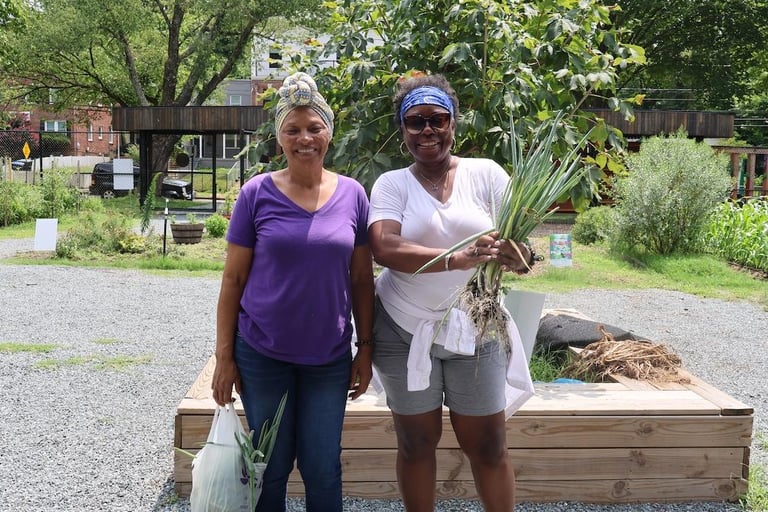

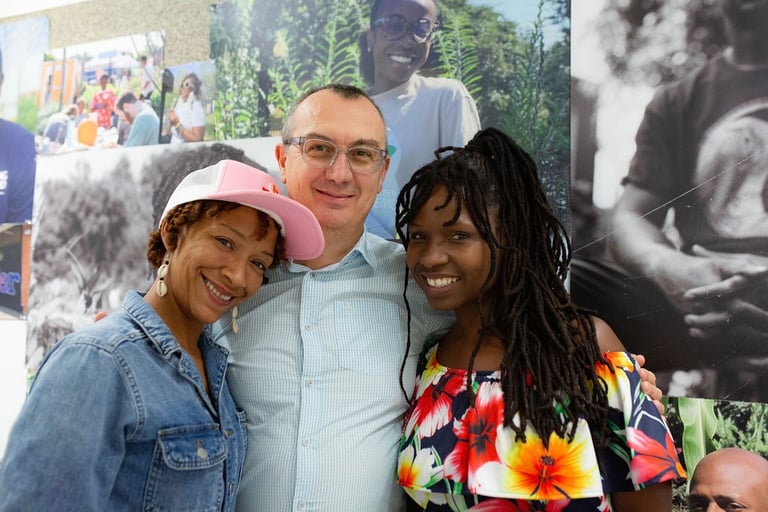

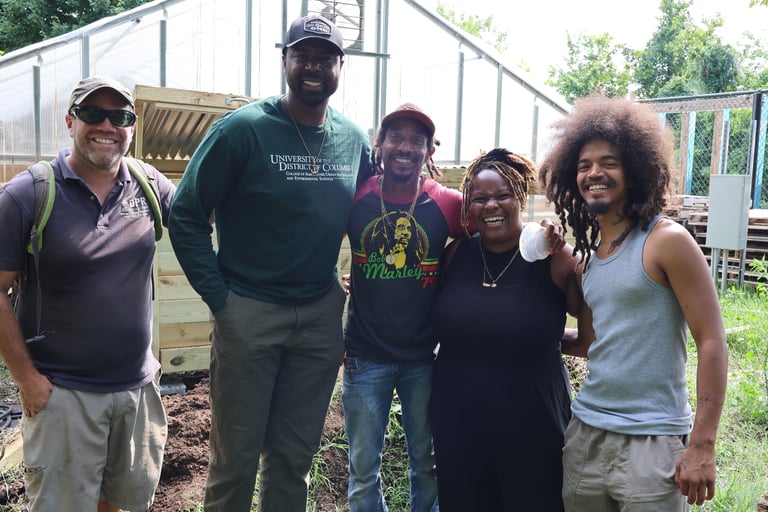

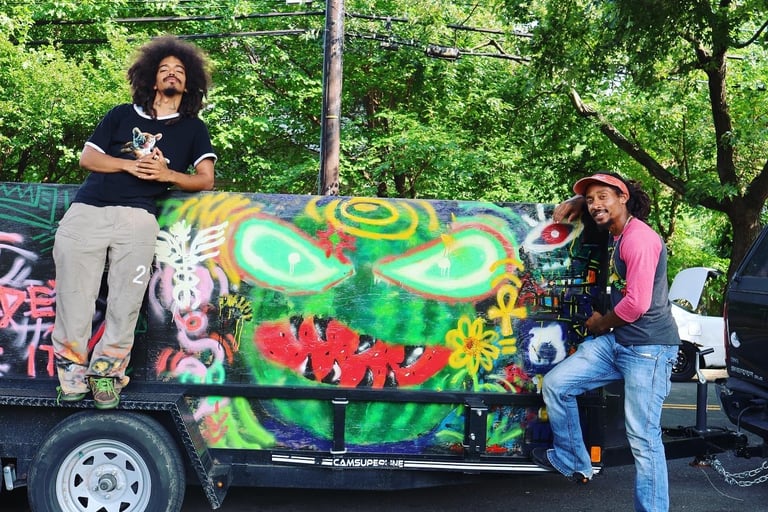

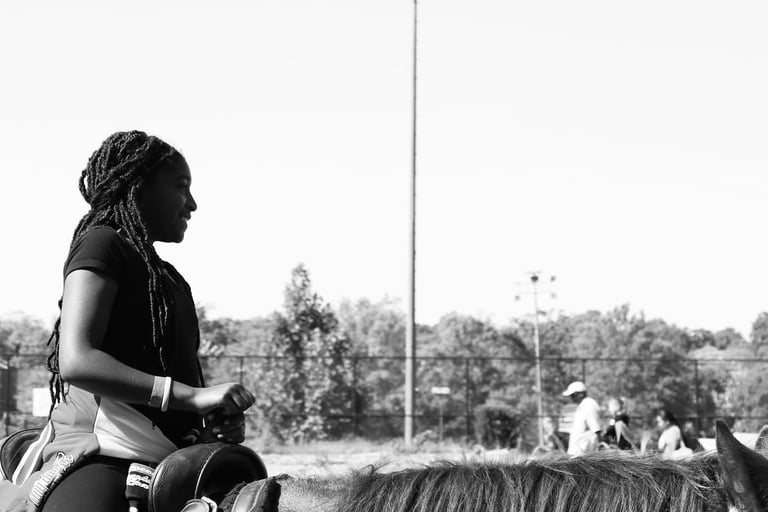

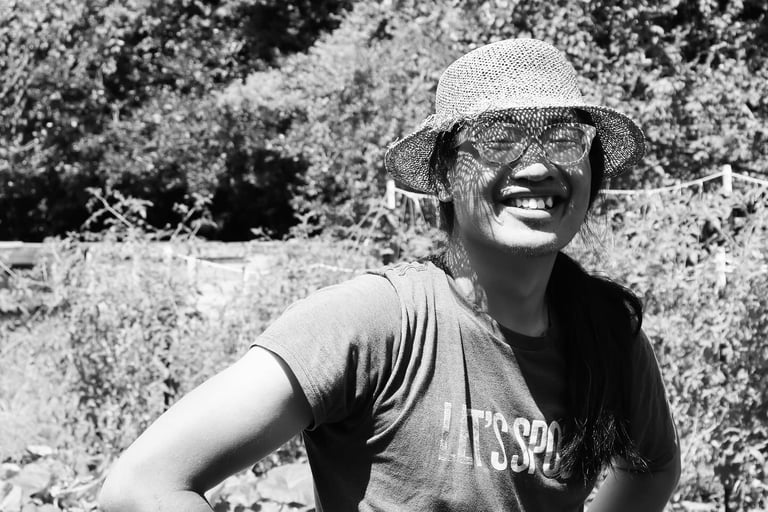

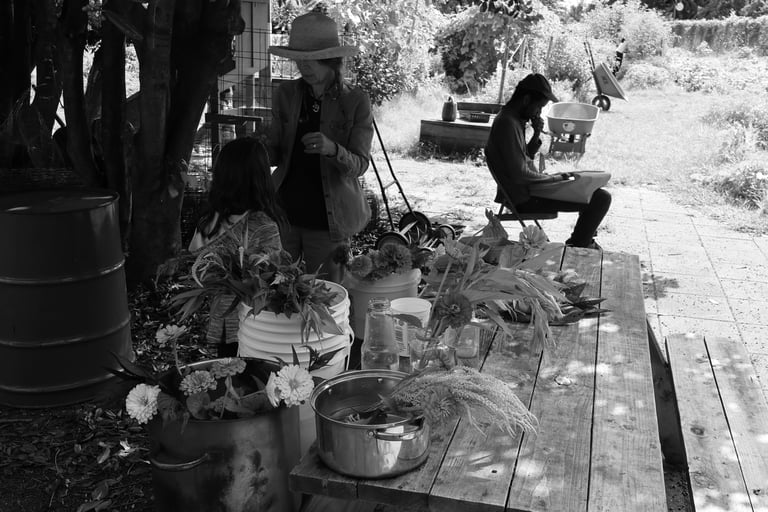

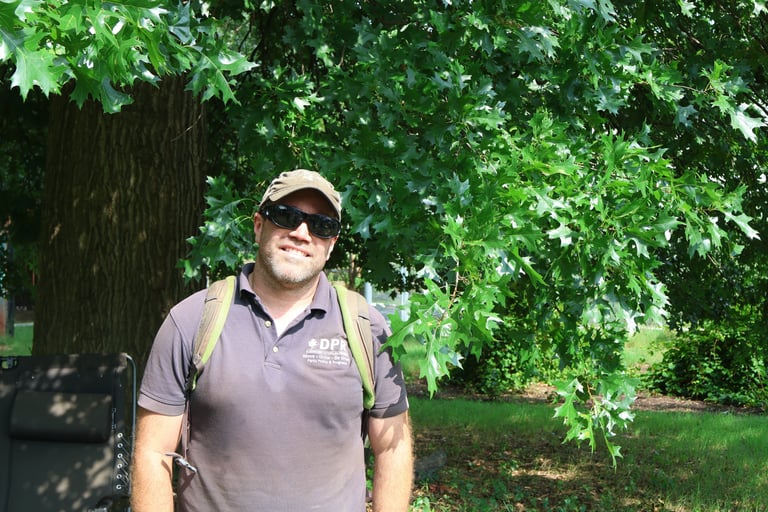

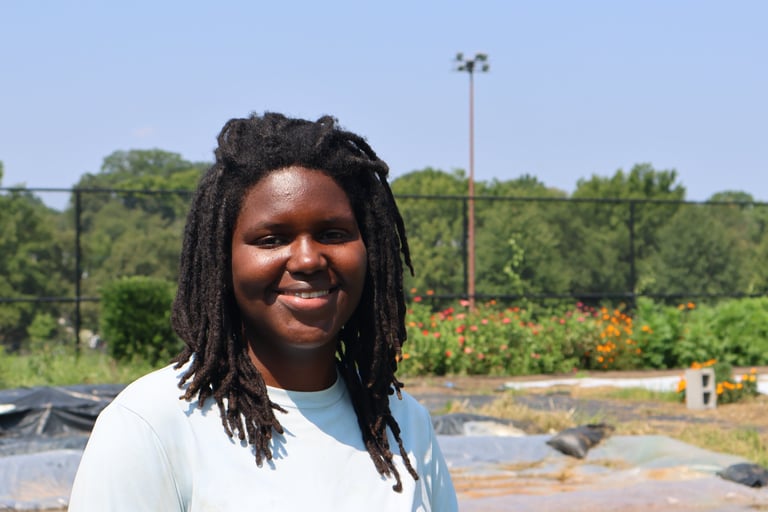

My cohorts Jaren Hill Lockridge and Mēlani N. Douglas
Volunteer Heather's flower stand at the Lederer Gardens
Joshua Singer, head farmer of Lederer Gardens at The Well
Girl enjoying a horse ride during a fair at the Farm at Kelly Miller
Cut and Kenny, who farm at The Well with their watermelon truck
A volunteer at the Lederer Gardens
Anacostia locals picking up groceries at The Well
The Well farming crew with Josh Singer from the Lederer Gardens
Autumn, the head farmer of The Farm at Kelly Miller
